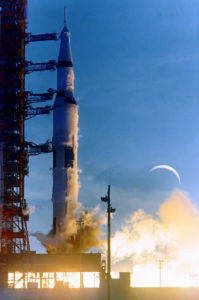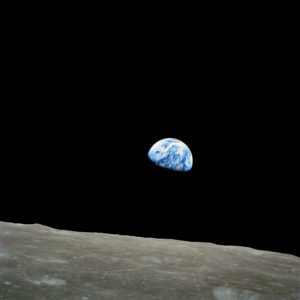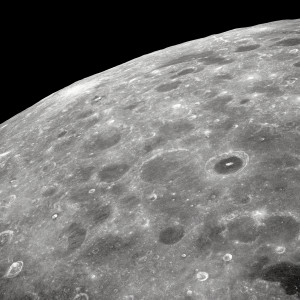Anyone who knows me knows I love space. Everything about the cosmos, from Sputnik to neutron stars, has caught my attention for as long as I can remember. I’ve always looked up and wondered what it was like to be up there, or what was going on right now in a far off corner of the universe. inevitably, I would look up at the Moon, and think about the fact that humans have been there.
As a child though, I didn’t have a full understanding of the history of space travel. How could I, after all? It was the very early 90’s, and there was no real internet yet. The best I could hope for was that my mom would get me a tape about space travel, which did often happen, but the only info I could learn was what was within those tapes. Otherwise, i did have school libraries, but those had very little in them. I knew of the American Mercury, Gemini, and Apollo programs, and knew some details on the Soviet Vostok and Soyuz programs as well, Soyuz especially considering by the mid to late 1990’s, US trips to the Mir space station became routine I knew a few details about each spacecraft, and what was done in each one, how they were launched, etc, but I didn’t really put it all together till much later in my life, as I began researching more about space on the good old internet.
The past month, I have been in one of those phases where much of my free time has been devoted to getting a better understanding of our 1960’s space program. I do that sometimes, just get into a heavy interest in something, and immerse myself for months at a time. I guess it’s how I keep my mind sharp and new, wanted information being forced in. Works for me, so why question it, right?
Now, you might ask yourself, what does this have to do with anything?
 Because today, December 21st, 2013, marks the 45th anniversary of the launch of Apollo 8, the first time humans ever truly left the Earth to orbit another object in space. One of many firsts in the space race, but an event that, on a human race level, is just as important as the later Moon landings themselves; in some ways, even more important, depending on how you look at it. No, I’m not about to give you a history lesson, but I am going to go into what I think about this amazing event in human history.
Because today, December 21st, 2013, marks the 45th anniversary of the launch of Apollo 8, the first time humans ever truly left the Earth to orbit another object in space. One of many firsts in the space race, but an event that, on a human race level, is just as important as the later Moon landings themselves; in some ways, even more important, depending on how you look at it. No, I’m not about to give you a history lesson, but I am going to go into what I think about this amazing event in human history.
It was December 1968. It was nearing the end of the decade, the goal that the late President Kennedy had set for the United States to make it to the Moon. It was nearly 2 years since the horrible Apollo 1 fire, at the time the ultimate low point in American space flight. It was only the second manned flight of the Apollo spacecraft, and the first manned flight of the massive Saturn V rocket, but stepping ahead in the flight schedule plans for the Apollo program, it was decided that Apollo 8 would orbit not the Earth, but the Moon.
Think about this. We had gone from making slow progress in Mercury in even getting into orbit, to project Gemini which, only in 1966 and the final few flights had actually had mostly successful missions, to attempting to have a crew leave the relative safety of Earth orbit, and fly to the Moon. Frank F. Borman, II, James A. Lovell, Jr., and William A. Anders would be the first humans to truly leave Earth.
This wasn’t just a case of orbit the Earth so high that they would eventually wind up near the Moon, no. With the Apollo flight plan, the spacecraft would nearly leave Earth orbit completely, on a trajectory that would almost take it to solar orbit forever. The only thing stopping this? The fact that the engine firing that actually sent the craft out of orbit, known as “Trans-Lunar Injection” was timed to set the craft to fly just by the Moon, and travel behind it. There, behind the moon, out of radio contact with the Earth, the crew would do an engine burn to slow their craft enough for it to begin orbiting the Moon.
Everything went as planned, and there, for the first time, human eyes saw the Earth all at once. Not only that, but they saw the entire Earth rise past the lunar surface, in the same way we see the Sun and Moon rise here on Earth. It put everything in perspective, just how fragile the entire planet is. How small Earth is on a relative scale.

Imagine, too, what it must have been like to be them, and to know that outside of their mission, every event in human history happened on, or just above, the blue and white sphere hovering a quarter of a million miles away.
On Christmas Eve, via a worldwide television broadcast, the crew read from the Book of Genesis in the Christain Bible. To me, a very fitting choice to show the contrast between the dark, cold, dead Moon, and the beautiful, life covered sphere we know as our home, Earth.
Half a year, and 3 Apollo missions later, Humans would finally be on the surface of the Moon in possibly the most well known event to happen in human history. Apollo 8, 9, and 10 would be forgotten, just as Apollo 7, and even the tragedy of Apollo 1 before it, and much of the details of Gemini and Mercury before those would also be forgotten by most people. The Shuttle program would come and go, and these days people wonder why we even bother to go into space. For me, it is our future. I know I am not alone in my view, but I wish more people, and governments would work together to achieve peaceful research and exploration of the cosmos, instead of constant war and hatred.
That was what the crew of Apollo 8 felt as they gazed on our world from afar. I think I share their vision, 45 years later.


5 years later I have to laugh – when I mention the orbital mechanics of going to the moon, I have things mostly backwards. They did burn to a high orbit, not one that would take them out of Earth orbit. That’s implied in what I originally said but not quite worded clearly – the entry is almost contradictory in how it’s phrased.
Eh, that’s how things go sometimes. You learn to write better as life progresses.